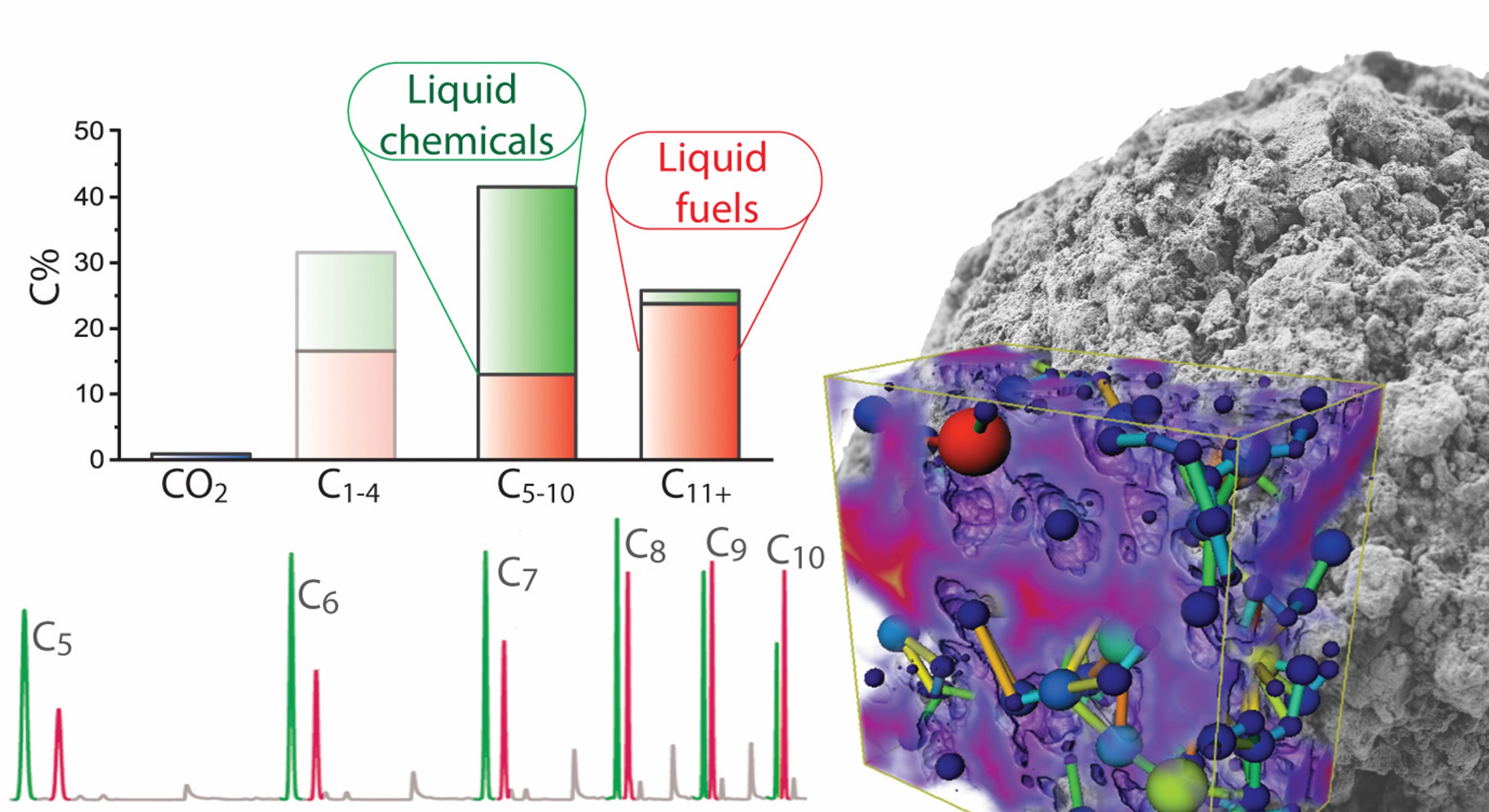Intermediate result from partner CSIC
Atomic level insights pave the way to Fischer-Tropsch catalysts with unconventionally high selectivity to liquid olefin chemicals
Result has been achieved in April 2012 in month 31 of the project.
A combined experimental and theoretical study uncovered how the combination of accelerated molecular transport across the pores of solid catalysts and surface oxide promoters can tweak the composition of products in Fischer-Tropsch processes. The team used tomographic imaging methods, in situ spectroscopy techniques and Density Functional Theory computational calculations to understand how short residence times of molecules within the pores of cobalt catalysts, alongside the inhibition of consecutive reactions, enable the conversion of (bio)syngas feeds to synthetic hydrocarbons which are unusually enriched in liquid (C5-C10) terminal olefins. Catalyst formulations reached activities up to >160 mmol CO gcat-1 h-1 at mild temperatures (<210ºC) while olefin contents in the light condensate products were as high as ~70%, with essentially no side-production of carbon dioxide. The mixture of synthetic hydrocarbons produced is amenable to upgrading into both high-cetane paraffinic diesel and mid-chain terminal alcohols. After blending, these two product fractions conform the biogenic Redifuel diesel, which exhibits soot inhibition properties. Part of these results have been published and are accessible open access at https://doi.org/10.1021/acscatal.0c05027.
- Objective: To understand molecular-level effects in the Fischer-Tropsch reaction with cobalt nanoparticles and exploit those to achieve unconventional hydrocarbon product distributions.
- Research: The performance effects of the pore architecture of solid catalysts and the deposition of oxide “patches” on their surface were investigated from complementary experimental and computational perspectives.
- Result: Catalyst structures and formulations were identified which led to very unusual product distributions, reaching record productions of liquid olefins with no CO2 side-production.
- What will it be used for: The olefin-enriched Fischer-Tropsch synthetic hydrocarbons serve as feed into further upgrading steps towards an alcohol-rich high-cetane biogenic diesel fuel.
- Impact: The obtained unusual product distributions, integrating precursors for synthetic fuels and liquid platform chemicals, might prove important to diversify the scope and improve the economics of small-scale gas- and biomass-to-liquid processes. In REDIFUEL, the liquid olefin products are converted to mid-chain alcohols which act as biogenic soot inhibitors in a high-cetane 2nd-generation biodiesel.






